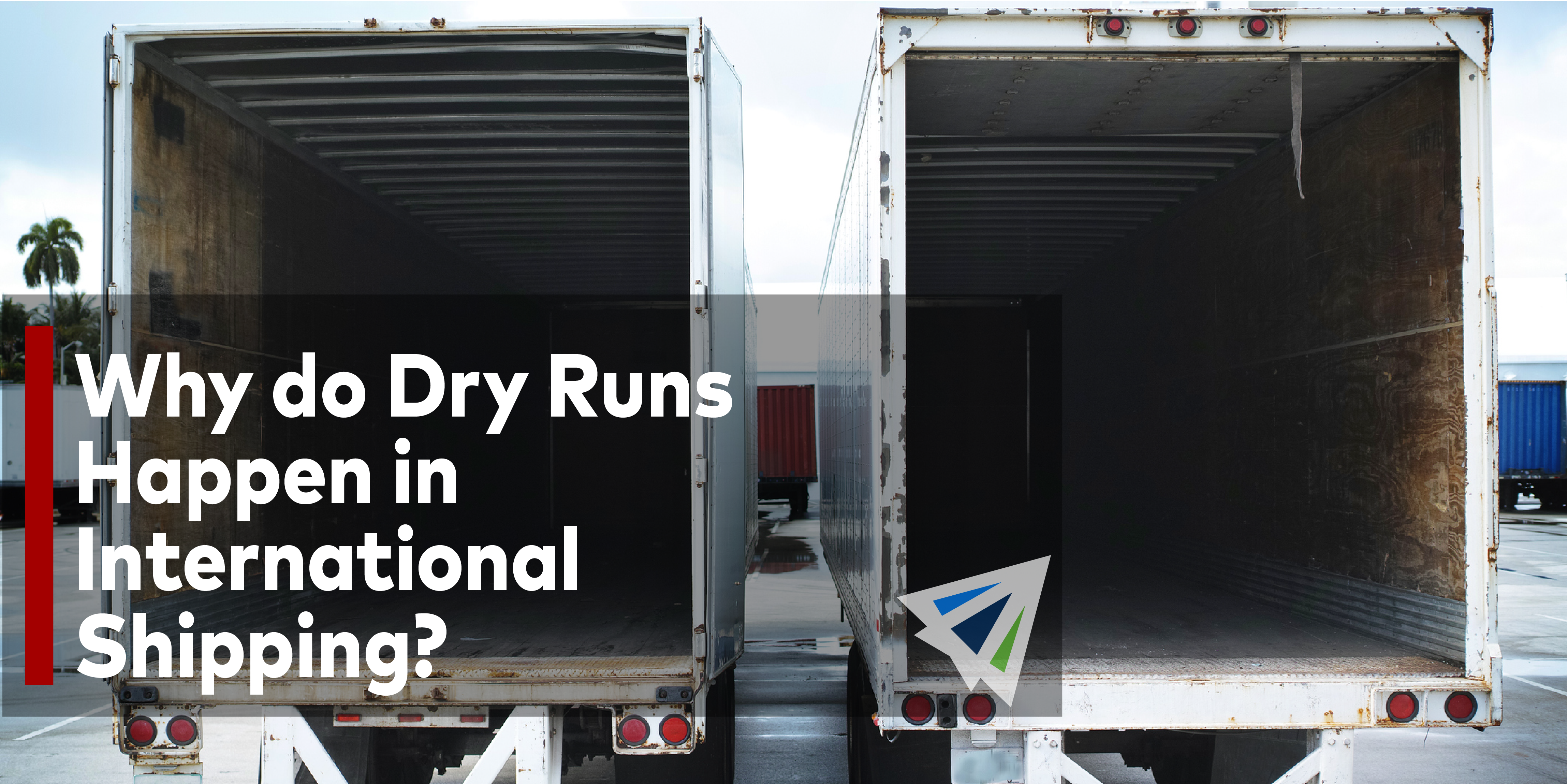There are a ton of fees already associated with international shipping. The sheer volume of line items on your end freight bill can be intimidating at times if you don’t exactly know what you’re being charged for. Truth is – some of those charges are incredibly frustrating if it was something that was out of your control. If you’ve ever had it happen, you know just how frustrating Dry Run Fees are in international shipping.
Dry Run Shipping Definition
In case you’re unfamiliar with the term, dry runs refer to a trip taken by a trucker that results in no cargo being picked up. Essentially, the trucker was booked to pick up cargo, traveled to the location but failed to pick up the cargo.
Regardless of whether or not cargo was picked up, the customer or shipper is still charged for the trip, since from the standpoint of the trucker, they did their job. If they were booked to pick up cargo and made the trip to do so, from their standpoint, they completed the same amount of work.
So if you’ve ever seen a dry run fee on your freight bill and your confused as to what it is, now you know! They’re incredibly frustrating but sometimes unavoidable. If you’re still scratching your head regarding wondering how it happened, here are a few reasons why dry runs happen in the shipping industry:
Reasons Dry Runs Happen in Shipping
There are a variety of reasons that a dry run may happen during the shipping process. These are a few of the more common reasons:
Port Congestion
Port congestion causes all sorts of issues. I’m sure the phrase alone makes you cringe. And we’ve all seen a surge in port congestion over the last several years. Demand for products is only growing and ports are doing everything they can to streamline the drop off and pickup process, but sometimes it’s unavoidable. And that is one of the major reasons for dry runs.
If you hire a trucker to pickup a container from the port that’s incredibly congested, there’s a pretty good chance it will result in a dry run. If they get to the port and there is no reasonable (or possible) way to get a hold of your container or shipment due to heavy congestion, you may end up getting billed for the trip without receiving your cargo. That will ultimately result in a rescheduling of cargo pickup.
Cargo Release
If you’ve been working in international shipping for some time, chances are that you know all about cargo release. And this is a huge issue for dry runs in the international shipping industry.
One of the most common reasons for dry run fees is that a trucker will go to pick up cargo but it will either not yet be released or ready for pickup. This usually happens due to cross-departmental communication. Someone in shipping management will notify and hire a trucker for a “ready” shipment, they will arrive at the warehouse or port and it won’t be ready due to miscommunication or a lack of communication between the two.
What to Do
Some dry runs are completely unavoidable. You can’t control all factors in the shipping process. However, if it keeps happening, it’s probably indicative that your department is overdue to make some serious changes in process and shipment planning.
The issue is, most shippers don’t know where to start. If you’re feeling frustrated or confused due to a recent dry run (or a string of several shipping dry runs), please don’t hesitate to reach out to one of our team members! We would love to answer any and all questions you may have about your international shipping practices.
